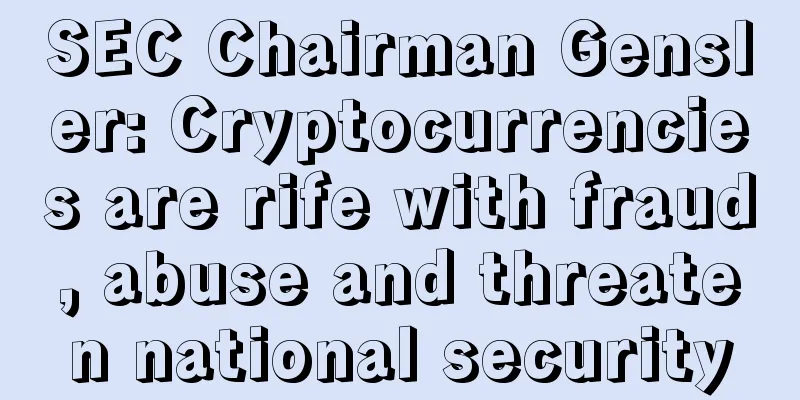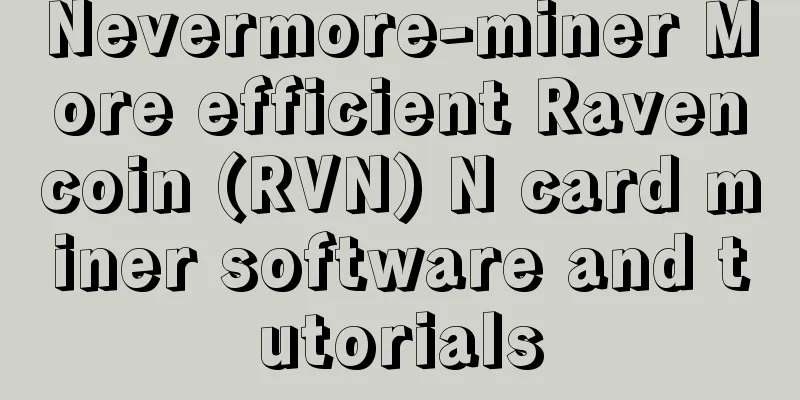SEC Chairman Gensler: Cryptocurrencies are rife with fraud, abuse and threaten national security

|
On August 4, Gary Gensler, chairman of the U.S. Securities and Exchange Commission, warned on Tuesday that new regulation of cryptocurrencies and digital assets is needed to protect the national security of the United States. He said that "this asset class is rife with fraud, deception, and abuse in certain applications. There is a lot of hype and deception about how crypto assets work. In many cases, investors cannot get rigorous, balanced, and complete information." He is particularly concerned about stablecoins, which are digital tokens pegged to the U.S. dollar or other fiat currencies and facilitate trading between various cryptocurrencies. Gensler said that about 75% of cryptocurrency transactions involve some kind of stablecoin. Gensler said: "These platforms may help those who seek to circumvent a range of public policy goals. Avoid our traditional banking system... avoid anti-money laundering and tax compliance sanctions." He added that this could threaten the national security of the United States. Gensler also called for greater regulation of decentralized finance, an alternative financial sector comprised of countless autonomously-run applications, primarily on Ethereum, where users can deposit their digital assets and earn returns, borrow or lend funds, and even buy and sell derivatives on blue-chip stocks. Gensler has been a leading voice advocating for stricter regulation of cryptocurrencies, including bitcoin and ether, though he has also prioritized other issues in his first months as chairman, including mandatory climate risk reporting. Before he was confirmed by the SEC, crypto enthusiasts were excited about his appointment as chairman because he had studied digital currencies for several years at MIT and developed a course on "Blockchain and Currency" that attracted millions of viewers on YouTube. During a question-and-answer session following Gensler’s speech, the SEC chairman likely disappointed industry insiders who were seeking more clarity on whether the agency considers any particular digital asset to be a security for regulatory purposes. Crypto entrepreneurs have largely created and disseminated digital assets without registering securities with the U.S. Securities and Exchange Commission (SEC), saving a lot of compliance time and money. The SEC has filed dozens of cases against entities that produced digital tokens for not registering as securities issuers, but the industry has been calling on regulators to issue clear guidelines on when digital assets are and are not considered securities. Gensler responded: "We are very clear on a lot of fronts." He added that the SEC has issued statements, reports and taken enforcement actions that, taken together, make the issue "very clear." The SEC adheres to a set of conditions known as the Howey test, which was established by the Supreme Court in 1946. The test states that an instrument is considered a security when it is "a contract, transaction, or scheme in which a person invests his money in a common enterprise with the expectation of profits derived solely from the efforts of the promoter or third parties." “I think it’s a lot clearer than some entrepreneurs think,” Gensler said. “It’s basically the expectation of profit from the efforts of a sponsor or someone else. It depends on the facts … but that’s the story in a lot of cases.” The SEC chairman said he wants to work with Congress to establish clearer authority for regulators to oversee cryptocurrency exchanges, whether they are traditional centralized exchanges like Coinbase COIN or Kraken or decentralized exchanges that use computer code to match buyers and sellers on a peer-to-peer network. Gensler said one obstacle facing the SEC in regulating cryptocurrencies is a lack of resources. He added that although the cryptocurrency market is small compared to stock and bond markets, it requires a lot of scarce expertise, time and attention to properly regulate. "We could double or triple the number of people working on this at the SEC and still probably not fully cover this area." |
Recommend
What kind of personality do people with small eyes have? Do you have a good personality?
Eyes are one of our five facial features. Their s...
The shape of a child's front teeth reveals his or her personality
In addition to eyebrows, eyes, nose, and mouth, y...
Men with promising facial features will definitely achieve great things in the future.
Different people will have different lives. Some ...
Ethereum burns for the first 24 hours. What is the Chinese community concerned about?
On August 5, at block height #12965000 (20:33 Bei...
On GRIN, MimbleWimble, and Monetary Policy
Grin is a new cryptocurrency that aims to provide...
Is it true that a man with a broken nose will bring bad luck to his wife? Which men with the most severe facial features will bring bad luck to their wives?
Men don't want to marry a woman who will brin...
Announcement on the Migration of the WeChat Service Account of Wabi.com
The Wabi.com service account will stop service on...
Judging a person's wealth index from his face
Judging a person's wealth index from his face...
The black swan is looming. Will the overheating of platform coins trigger the risk of central bank supervision?
Recently, platform coins, led by OK Group's O...
It’s finally here! A comprehensive explanation of the new features of Uniswap V3
introduce What is the long-awaited Uniswap V3 all...
Is it good for a man to have a mole on his cheekbone? Generally, he is a leader.
What does it mean if a man has a mole on his chee...
New Bitcoin.com Wallet Released
Recently, Bitcoin.com released a new Bitcoin.com ...
Juniper Research: Bitcoin trading could continue to rise if Trump is elected
Rage Commentary : Trump's radical remarks dur...
How does a person with crooked teeth look?
A person's fortune can be seen from different...
PwC studies blockchain’s impact in group insurance
Rage Review : PricewaterhouseCoopers, one of the ...









